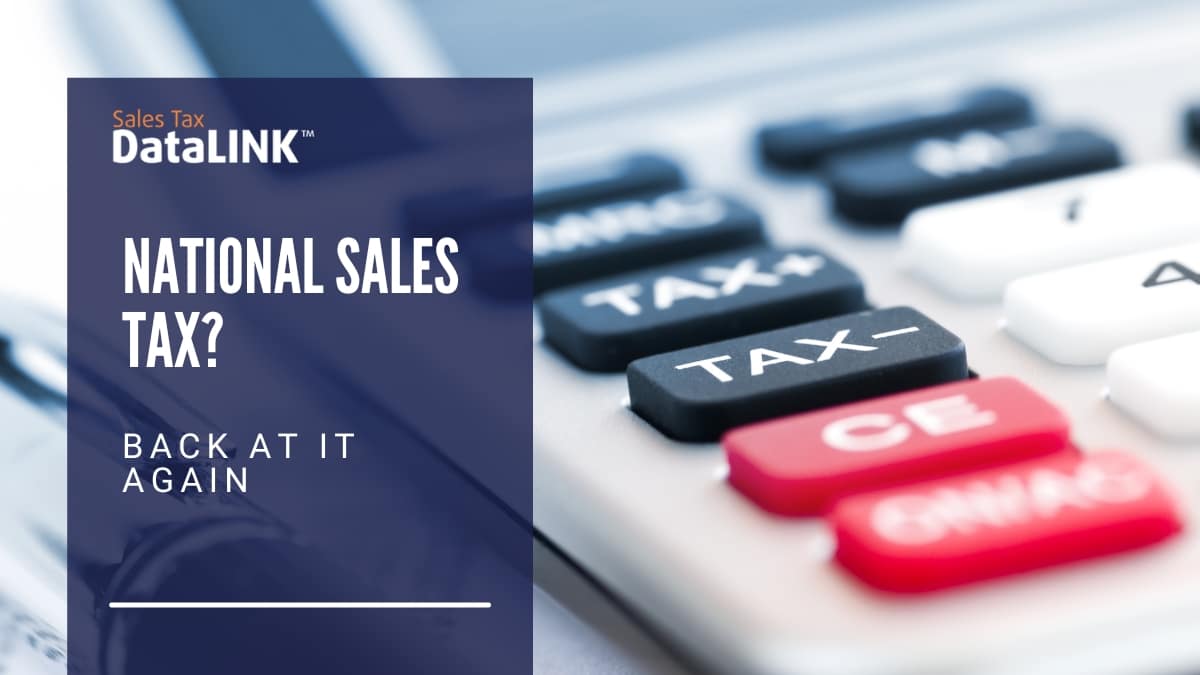Justice Anthony Kennedy’s Push For a National Sales Tax
What does Justice Anthony Kennedy have to do with sales tax? Quite a lot, in fact. An opinion released on Tuesday was unanimous 9-0 in favor of the Direct Marketing Association, which sued Colorado over having to report non-taxed consumer online sales information to the State’s tax board. You can read the full opinion on the Supreme Court website but what you should know is that Justice Kennedy filed a concurring opinion and is pushing towards reassessing the laws created by the historic Quill case.
Appointed by President Reagan in 1988, Justice Kennedy is one of three current US Supreme Court Justices who sat on the bench during the Pivot 1992 Quill case. Along with current Justices Scalia and Thomas who also presided over the Quill case, Kennedy and the rest of the 1992 Supreme Court unanimously agreed on three of the four parts in the opinion, effectively creating the nexus rules we use today in sales tax.
Understanding the Supreme Court and Sales Tax Opinions
If you’re a bit rusty on your American Civics classes, the Supreme Court doesn’t actually make laws but only issues opinions on cases. With nine Justices, it’s easy to see that not everyone is going to agree all the time or agree on every part of an opinion. Justices can file dissenting opinions when they disagree and concurring opinions when they agree but for different legal reasons. These concurring opinions are broken into parts of the opinion and are not considered legal precedents—in other words, they’re not effectively changing the law.
Back in 1992, all three current Justices subscribed to the three parts of the Quill case that created today’s sales tax laws. But in Tuesday’s opinion, Kennedy points to the need to reassess.
Sales Tax History in the Supreme Court
To give you a quick primer on sales tax in the US Supreme Court, in 1967 the Court ruled that companies must have a physical presence in the state to be obligated to collect sales tax in National Bellas Hess, Inc. v. Department of Revenue of Ill. Later in 1992, the issue arose again but this time in the form of catalog sales in the Quill case, which the court opined was already covered in the Bellas Hess case by stare decisis or legal precedent alone.
Kennedy’s Tuesday concurring opinion states “This further underscores the tenuous nature of that holding—a holding now inflicting extreme harm and unfairness on the States,” noting that keeping the opinion created in 1967 via stare decisis might not make sense anymore in today’s hyperconnected world. It comes down to not including precedent from another case, Complete Auto Transit, Inc. v. Brady, where the legal test for nexus was further refined from the Bellas Hess case.
In Quill, the Court should have taken the opportunity to reevaluate Bellas Hessnot only in light of Complete Auto but also in view of the dramatic technological and social changes that had taken place in our increasingly interconnected economy. There is a powerful case to be made that a retailer doing extensive business within a State has a sufficiently “substantial nexus” to justify imposing some minor tax-collection duty, even if that business is done through mail or the Internet.
Kennedy is basically saying it’s time to reevaluate Quill, Bellas Hess, and Complete Auto. And that might mean national sales tax without an act of Congress. Kennedy sums it all up:
As a result [of consumer connectivity to companies outside their state’s borders], a business may be pre- sent in a State in a meaningful way without that presence being physical in the traditional sense of the term.
…
Given these changes in technology and consumer so- phistication, it is unwise to delay any longer a reconsider- ation of the Court’s holding in Quill.
…
It should be left in place only if a powerful showing can be made that its rationale is still correct.
But wait, the Court can’t create sales tax–can they?
Maybe you’re waving your arms saying that the Supreme Court can’t rule on local-state issues when it comes to taxation because of the Tax Injunction Act. The Act states that federal courts, including the Supreme Court, “shall not enjoin, suspend or restrain the assessment, levy or collection of any tax under state law.”
Basically, the federal government can’t stop a state from, telling a state how to, or force a state to collect taxes. But they can give states the power to do so if the state so chooses. If the Supreme Court hears a case on Quill and the other Justices agree with Kennedy,
they can change the way we interpret nexus for our connected world today and in the future, potentially giving states the jurisdiction to collect sales tax on purchases made virtually outside their borders by their citizens.
And don’t forget, the Marketplace Fairness Act is seeing a resurgence in the Senate. National sales tax might not be that far away.




